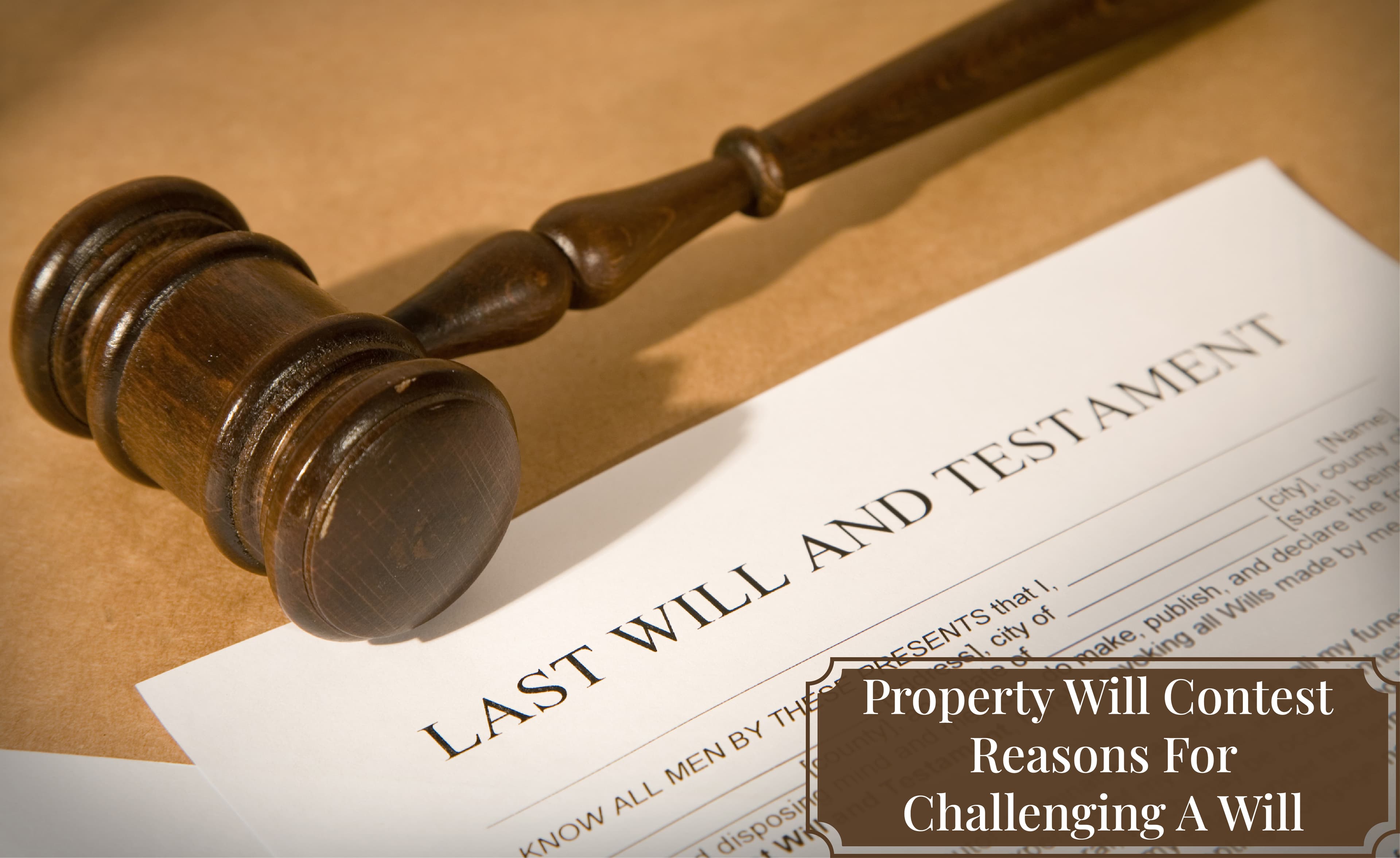
A will contest can be an expensive and lengthy process. But when your loved one dies and you’re owed property, contesting a will may be the best chance for you to recover it.
What is Will Contest?
Wills are legal documents specifying who gets the property of a deceased individual and the person charged with the responsibility of making sure that the estate is settled correctly. Contesting a will is one special lawsuit seeking to invalidate the will of a deceased person.
If you have plans to file a will contest since you believe that a friend or one of your family members won’t be reflecting their final wishes accurately, then think about it carefully. Will contests aren’t only emotionally draining but also very costly; it will eat up much of your money and time during the entire duration of the litigation. However, if you really want to continue contesting a will and don’t care about the involved costs, then please read on below.
What are the Acceptable Reasons or Grounds for Contesting a Will?
Challenging a will can’t be done because you simply don’t find the terms favourable. In most states, there are only four legal reasons for contesting a will. Please take note, though, that proving any one of them can be very difficult. But if one of the four legal reasons does exist, a will can definitely be invalidated.
Keep in mind that it isn’t a matter of invalidating only one provision. The entire last will and testament get effectively thrown out. The estate then proceeds as though there was no will left by the decedent.
01. The Testator wasn’t Mentally Competent
The person whom the will belongs to, known as the testator, must be mentally competent as he writes out the will. This is to ensure that malicious relatives can’t take advantage of him. Otherwise, the testator can be considered to be under “undue influence.”
A testator has testamentary capacity only if he is of sound mind condition when writing the will. That means he understands all the consequences of writing the last will and testament and assigning beneficiaries. It also holds as to the nature of his estate.
02. The Written Will Contest has Broken Laws

The last will and testament that’s not legally valid can also be challenged in the court. For a will to be considered valid, it must follow the following laws:
- It needs to have signatures from two witnesses. It’s essential to note that in some states, a witness must not be one of the beneficiaries.
- If ever the testator decides to modify the will, the new document should also contain signatures from two witnesses.
- The owner of the will has the right to decide for the distribution of the property, including home and real estate. When it comes to community property states, though, the testator generally can’t distribute any property acquired during his marriage if his spouse is still alive.
- The owner of the last will and testament wasn’t tricked into signing the document.
- Fraudulent and forged wills aren’t valid, too. If the last will and testament are holographic or handwritten, it’s more vulnerable to contest since it may not have all the necessary legal formalities. However, as long as the probate judge approves it, it can still be considered valid.
03. There is a Newer or More Recent Version of the Last Will and Testament
The codicil or the modification will automatically revoke all previous will versions if ever the testator decides to modify the last will and testament. As long as the latest version of the will has been properly created, it should only be the one considered legally valid.
04. The Will is Incomplete
A will may also be considered incomplete if specific legal standards aren’t met in the will. Some of the reasons for declaring the last will and testament incomplete include omitting text where needed, leaving blank spaces where the names of the beneficiary should be placed, and failing to sign the document.
How to Contest a Will?
For an individual to successfully contest a will, the following steps should be taken first.
01. File on Time to Contest a Will
Filing the will contest on time is still essential even if you already have proper standing of doing so. The time limit for contesting a will depend on the laws of the state where the testator lived and died. It may reach up to several years or only take a few weeks.
The reasons behind the limited time provided for contesting a will is to ensure that the transferring of property from the testator’s name to all the beneficiaries and the payment of the final expenses can be quickly accomplished. Otherwise, the complete distribution of estates would never happen because of fear that someone decides to contest the will later on. That said, what happens is that the legal claim will get time-barred if someone waits for an extended period before actually contesting a will.
02. Determine if You have Valid Standing to File Will Contest
It’s essential to note that not everyone who wishes to contest a will can do it. In legal terms, only those that have “standing” can file a will contest, may it be an entity or a person. What standing means here is that the party who will file a lawsuit will get personally affected by whatever outcome the case will have. It means that the individual submitting a will contest must either be a beneficiary named in the will of the decedent or an intestate heir. If the party contesting the will is an entity, then it should be included in the last will and testament as either a fiduciary or a beneficiary. Any party without standing can’t proceed with contesting a will.
03. Grounds for Contesting the Will
As already mentioned above, there are legal grounds for contesting a will. That said, having the time and the required standing to file a will contest isn’t enough since sufficient grounds should be present, too. Again, four accepted grounds exist, which include:
(a) Lack of proper legal formalities during the signing of the last will and testament;
(b) The testator wasn’t mentally capable of writing a last will;
(c) There was an unduly influence made to the decedent on writing the document and
(d) If a will was procured in a method that can be considered as fraud.
How to Increase the Chance of Winning a Will Contest?
Proving these different grounds for contesting a will can be extremely difficult. You must carefully assess whatever evidence you got to back your suspicions up before proceeding any further. You’ll need professional help from an experienced estate planning attorney to help you determine if your evidence is enough for contesting a will.

A probate lawyer will represent you and file the will contest on your behalf. Hiring an attorney can be costly, but it can definitely save you so much time and effort. It will also make it more likely that you’re going to win the contest.
Also Read:
What are the Different Purposes for Valuation of House?
All You Know About Conveyance Deed for Your Property!































